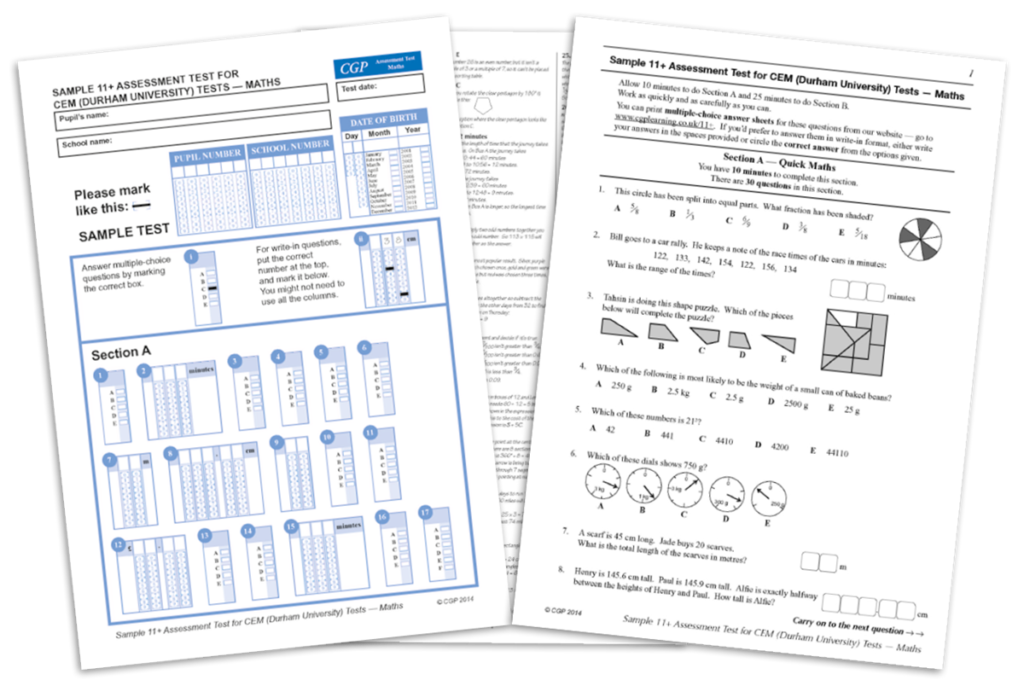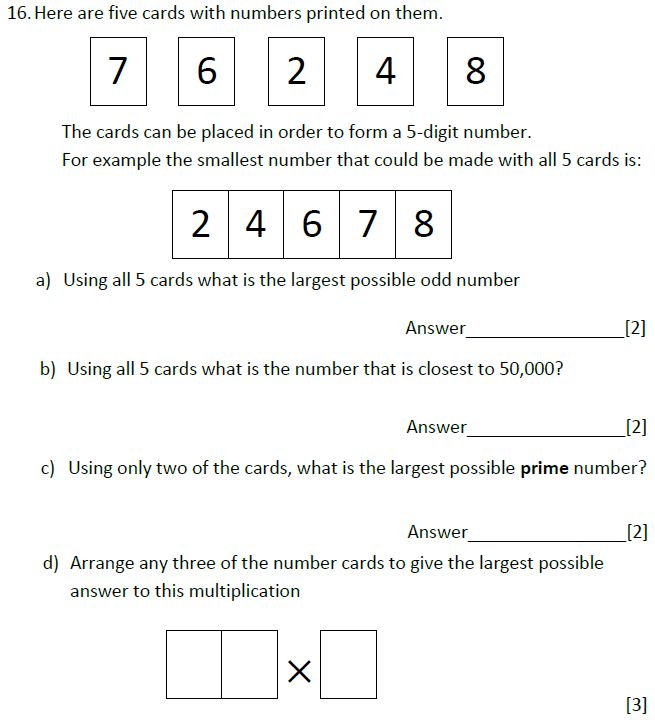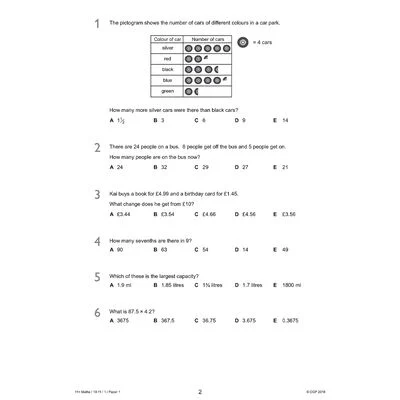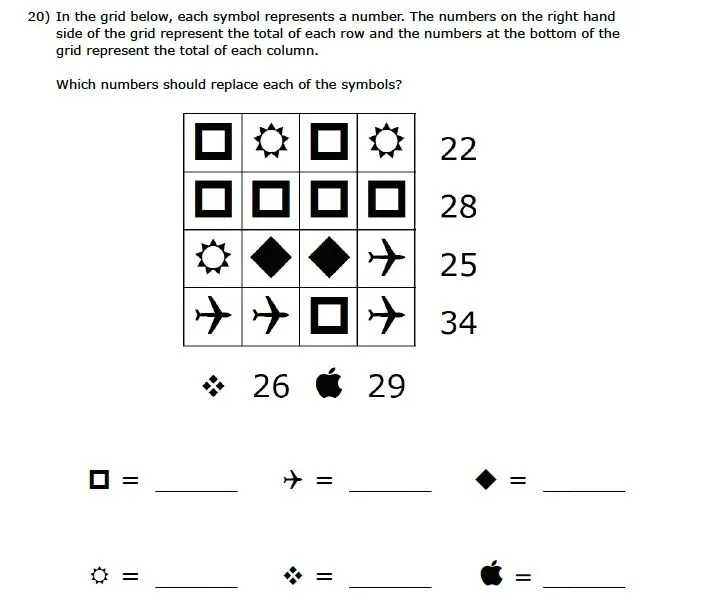To excel in 11+ maths papers, start by thoroughly understanding the syllabus to know what topics to focus on. Regular practice is key to building speed and accuracy, so use past papers and practice books. Understand the concepts behind formulas and methods instead of just memorizing them.
Develop strong mental arithmetic skills and learn shortcuts for common problem types. Take time to read questions carefully and show your working, especially in longer problems.
Practice time management to complete the paper within the given time limit, and review mistakes to learn from them. On exam day, stay calm and focused, taking deep breaths if needed and trusting in your preparation.
What topics are covered in the 11+ maths syllabus?

The 11+ maths syllabus typically covers a range of topics designed to test a student’s mathematical aptitude and problem-solving skills. Here are some common topics:
- Basic Math: Adding, subtracting, multiplying, and dividing numbers.
- Fractions: Understanding and working with fractions, which are parts of a whole.
- Decimals: Dealing with numbers that have a dot and parts smaller than 1.
- Percentages: Figuring out parts of a whole, often shown with the symbol %.
- Ratios and Proportions: Comparing amounts and sizes of things.
- Algebra: Using letters and symbols to solve problems.
- Geometry: Learning about shapes, angles, and lines.
- Measurement: Figuring out lengths, weights, and sizes of things.
- Data: Reading and understanding information shown in tables, graphs, and charts.
- Problem Solving: Using math to solve real-life problems and puzzles.
How can I find practice materials for the 11+ maths exam?

Finding practice materials for the 11+ maths exam can be essential for preparation. Here are some avenues you can explore:
Look for specialized books designed for the 11+ maths exam. There are many publishers who produce materials specifically tailored to this exam, often with a range of difficulty levels. Websites like CGP Books, Bond 11+, and Exam Ninja offer a variety of practice materials for the 11+ exams, including maths. Many of these sites offer both free resources and materials for purchase.
Past papers are invaluable for getting a sense of the types of questions that may appear on the exam. Check with your local educational authority or the specific schools you’re interested in for access to past papers.
Some tutoring centers specialize in preparing students for the 11+ exams. They often have access to a wide range of practice materials and can provide personalized guidance.
Websites like The Student Room often have dedicated forums where students and parents share advice and resources for preparing for the 11+ exams. You might find recommendations for good practice materials here.
There are several apps available for smartphones and tablets that offer practice questions and mock exams for the 11+ maths exam. These can be a convenient way to practice on the go.
What strategies can I use to deepen my understanding of mathematical concepts?

Deepening your understanding of mathematical concepts involves more than just memorizing formulas and algorithms. Here are some strategies to help you achieve a deeper understanding:
Visualize
Visualization involves creating mental images or physical representations of mathematical concepts. For geometry, you might visualize geometric shapes in 3D space or use diagrams to understand relationships between angles, sides, and vertices.
In algebra, visualizing graphs of equations can help you understand concepts like slope, intercepts, and transformations. Using visual aids like manipulatives, geometric models, or graphing software can enhance your understanding by providing concrete representations of abstract concepts.
Seek Multiple Perspectives
Mathematics can be approached in various ways, and different explanations may resonate differently with individuals.
Explore different textbooks, online resources, or video tutorials to encounter diverse explanations and approaches.
Engage in discussions with peers, teachers, or tutors to gain insights from their perspectives and problem-solving strategies.
Attend workshops, seminars, or online courses to expose yourself to new techniques and viewpoints.
Practice, Practice, Practice
Practice is essential for developing fluency and mastery in mathematics.
Start with simple problems to grasp fundamental concepts, then gradually increase the difficulty level as you become more proficient.
Regular practice builds confidence and familiarity with mathematical techniques, reducing the need for rote memorization.
Reviewing your mistakes and understanding why you went wrong is as crucial as solving problems correctly. This helps identify areas for improvement and reinforces learning.
Teach Others
Teaching requires a deep understanding of the material and the ability to communicate it effectively.
Explain concepts to classmates, siblings, or friends who may be struggling with mathematics. Teaching forces you to articulate ideas clearly and concisely.
Peer tutoring or volunteering to assist others can provide valuable teaching experience while reinforcing your own understanding.
Presenting math concepts in alternative ways can deepen your own understanding as you explore different explanations and analogies.
Make Connections
Mathematics is interconnected across various topics and disciplines.
Look for connections between different mathematical concepts, such as seeing how algebraic principles apply to geometric problems.
Relate mathematical concepts to real-world scenarios or other academic subjects, such as using calculus to model changes in physical systems or applying statistics in data analysis. Understanding the broader context in which mathematics is used helps make abstract concepts more meaningful and applicable.
Ask Questions
Effective questioning is a fundamental aspect of learning mathematics.
Don’t hesitate to ask questions when you encounter something you don’t understand. Clarifying uncertainties early prevents misconceptions from persisting.
Formulate specific questions that address your confusion or curiosity, whether it’s about a particular step in a problem-solving process or the underlying rationale behind a mathematical theorem.
Actively engage in classroom discussions, seek clarification from teachers or peers, and utilize online forums or Q&A platforms to get answers to your questions.
Reflect and Review
Reflection involves consciously thinking about your learning process, identifying strengths and weaknesses, and considering how to improve.
Regularly review your notes, assignments, and practice problems to reinforce your understanding and refresh your memory.
Reflect on your problem-solving strategies, recognizing which approaches were effective and which could be refined.
Set aside time for self-assessment, evaluating your progress and setting goals for future learning objectives.
How can I improve my mental arithmetic for quicker problem-solving?
Getting better at doing math in your head can help you solve problems faster. Just like practicing soccer or playing an instrument, practicing mental math makes you better. Learn tricks like knowing your times tables and rounding numbers. Make sure you know how to add, subtract, multiply, and divide really well.
Look for patterns in numbers, and picture them in your head to help with calculations. Practice with fun math games and try solving harder problems as you get better. Stay calm and focused when you’re doing math in your head, and see how quickly you can solve problems. Keep practicing regularly to keep getting better!
Final Words
Acing 11+ maths papers requires understanding the topics in the syllabus, practicing regularly, and mastering mental arithmetic. It’s important to grasp the concepts behind formulas and methods and to use shortcuts effectively. Reading questions carefully, showing working, managing time well, and reviewing mistakes are also crucial.
Remember to stay calm and focused during the exam. By following these tips, you can perform your best and achieve success in the 11+ maths papers.
